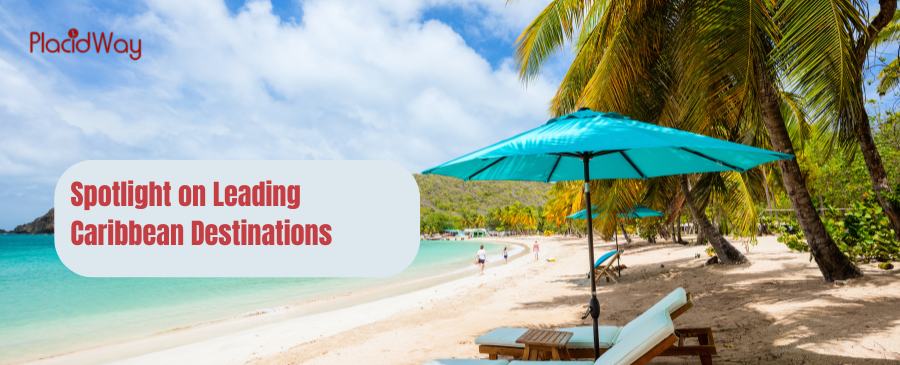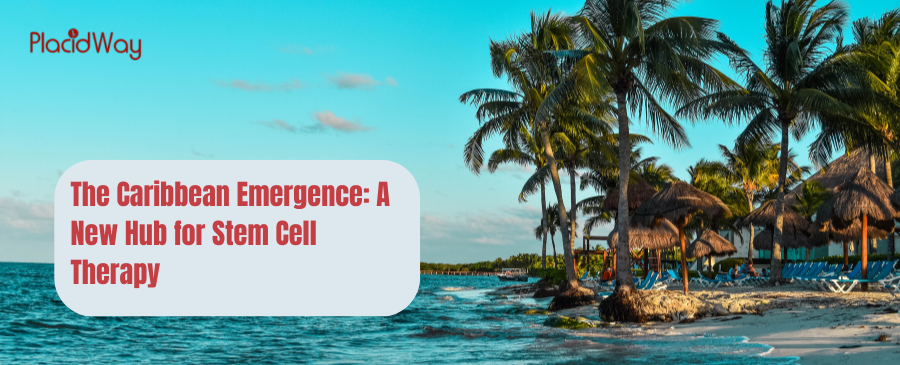The Caribbean, long celebrated for its sun-drenched beaches and vibrant cultures, is rapidly carving out a new reputation: a burgeoning hub for advanced medical treatments, particularly in the innovative field of stem cell therapy. This evolution is part of a larger global trend in medical tourism, a sector experiencing explosive growth. Worldwide, the medical tourism market is projected to climb from USD 46.27 billion in 2023 to an impressive USD 142.7 billion by 2032, fueled by patients increasingly looking beyond their borders for healthcare solutions. Regenerative medicine, with stem cell therapy at its core, is a significant driver of this movement, as individuals seek novel answers for conditions where traditional medicine may have reached its limits.

Why the Caribbean? Key Attractions for Medical Travelers
The Caribbean's ascent as a destination for stem cell therapy is driven by a compelling combination of factors that appeal to an international clientele seeking more than just a vacation.
Access to Innovative Treatments: A powerful motivator for many is access to cutting-edge stem cell treatments and proprietary protocols that may not yet be approved or widely available in their home countries, such as the United States or Canada. Some Caribbean nations have established regulatory frameworks that are more adaptable to the application of these innovative medical approaches. For example, Cayman offers cultured stem cell procedures using advanced cell expansion methods not currently permitted in the U.S. Similarly, the Stem Cell Medical Center in Antigua provides treatments approved by the local government that are not yet available stateside. This "regulatory advantage" allows clinics in these jurisdictions to offer therapies that face more prolonged approval processes elsewhere.
Quality of Care and Conducive Recovery Environment: Beyond cost and innovation, Caribbean stem cell clinics frequently emphasize their commitment to high standards of care. Many facilities highlight their modern, world-class infrastructure, the presence of U.S.-trained or board-certified physicians, and advanced on-site laboratories for cell processing. This focus on medical expertise is often beautifully complemented by the undeniable allure of recovering in a serene, tropical setting.
Cost-Effectiveness: One of the most significant draws is the potential for substantial cost savings compared to treatments in Western nations, especially the United States. Stem cell therapies in the U.S. can range from $20,000 to $50,000, while some Caribbean destinations, or nearby benchmarks like Mexico, might offer treatments from $6,500 up to $15,000 or $25,000 depending on the complexity, such as spine treatments in Roatan, Honduras. This price difference can make previously unattainable advanced therapies a viable option for many.
Accessibility and Reduced Wait Times: The geographical proximity of many Caribbean islands to North America is a major advantage. The Cayman Islands, for instance, are a short flight from Miami and served by numerous U.S. cities and Toronto. Antigua is also noted for its easy accessibility for American patients. This convenience is often paired with significantly shorter wait times for procedures compared to what patients might face in their home healthcare systems.
The "serene recovery environment" is consistently promoted as a beneficial aspect of the treatment journey with some clinics even marketing a "resort-like experience" that integrates medical care with vacation amenities. This holistic approach to quality care—encompassing clinical excellence, advanced technology, and a supportive, aesthetically pleasing recovery environment—is a crucial part of the patient's experience.

Spotlight on Leading Caribbean Destinations
While the Caribbean offers a range of options, several islands have emerged as prominent centers for stem cell therapy, each cultivating specific areas of expertise.
Cayman Islands (Grand Cayman): This British Overseas Territory has solidified its reputation as a premier destination, particularly for advanced orthopedic stem cell treatments and therapies involving cultured cells. The regulatory framework in the Cayman Islands is often described as conducive to such innovative medical practices.
Antigua: This Eastern Caribbean Island is rapidly emerging as a significant player. They offer a broad range of treatments using potent MSCs derived from umbilical cord tissue, addressing conditions such as anti-aging and wellness, sports injuries, cardiovascular diseases, post-COVID syndromes, and autoimmune disorders.
Roatan (Honduras): Though geographically part of Central America, Roatan's Caribbean Island setting and medical tourism offerings place it firmly within this regional discussion. The facilities here specializing in autologous stem cell treatments for spine conditions, orthopedic issues, and anti-aging, frequently provided within a resort-like environment.
Other Notable Destinations:
The Bahamas has shown governmental interest in fostering a regulated stem cell therapy sector, with its Stem Cell Act undergoing revisions to incorporate modern concepts like longevity and anti-aging.
The Dominican Republic is recognized for its strong medical governance and excellence in international stem cell therapies, with PlacidWay's network including the Center for Prolotherapy and Pain Management in Santo Domingo, which offers orthopedic stem cell treatments.
A common thread among many of these leading Caribbean clinics, particularly those targeting North American patients, is the emphasis on U.S.-trained or board-certified physicians and the presence of on-site, advanced laboratories. This addresses potential patient concerns about the quality and standards of care available abroad, leveraging the strong reputation of U.S. medical training and quality control to build trust.

The Caribbean and Stem Cell
The Caribbean has successfully transitioned from a purely leisure destination to a significant player in the global medical tourism arena, especially for stem cell therapies. The combination of access to innovative treatments, potential cost savings, high-quality medical care, and appealing recovery environments has created a compelling proposition for patients worldwide. As islands like the Bahamas, Caymans, Antigua, and Roatan continue to develop their specializations and uphold rigorous standards, the region's prominence in regenerative medicine is set to grow. However, prospective patients must undertake thorough research and due diligence to navigate this promising but complex landscape.
Position your clinic as a Caribbean leader in stem cell therapy—connect with global patients seeking innovative, affordable, and high-quality treatments today!



